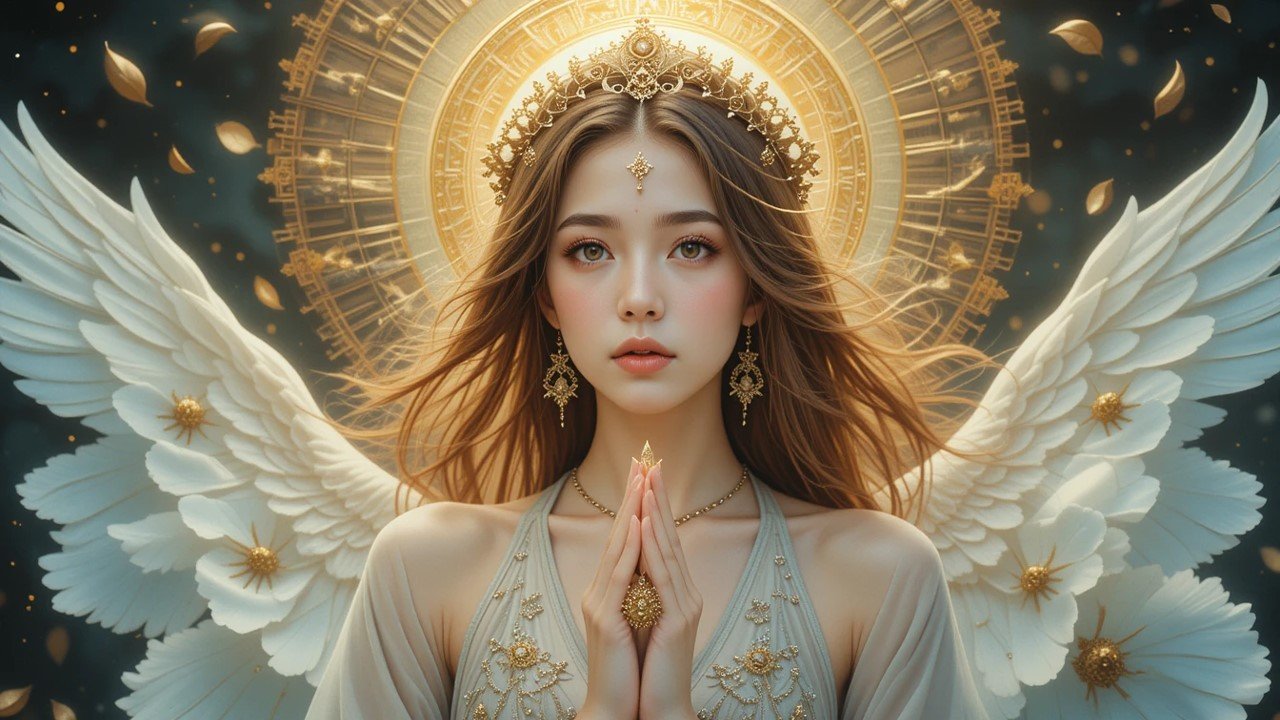7 Stages of Spiritual Development
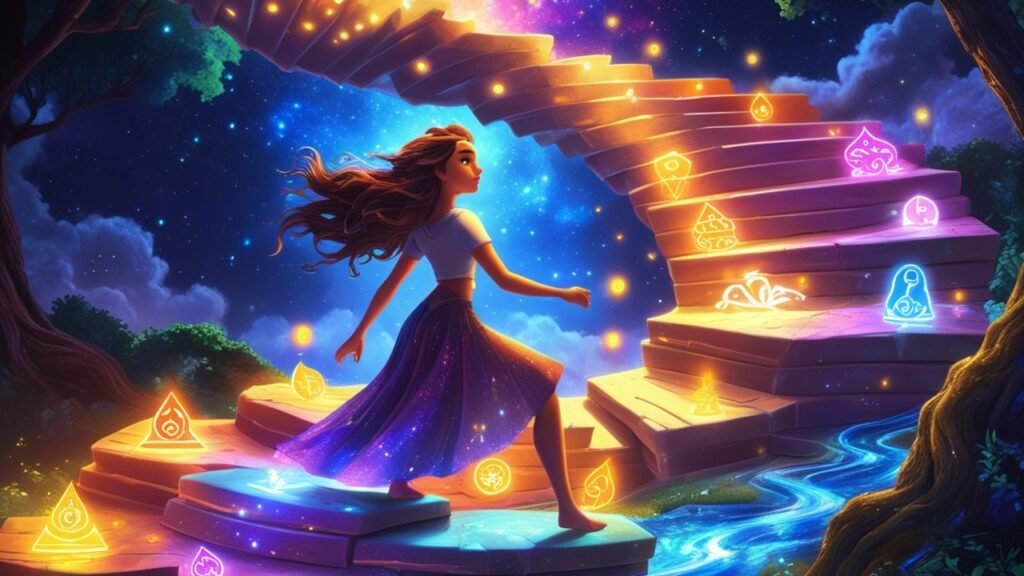
The 7 stages of spiritual development are the points that we work through as we continue to evolve.
We are all on this spiritual journey. Some of us are further along than others. Some of us are unaware that we are on this journey. And some of us are so aware that we are stuck.
Wherever you are, is perfect. You are exactly where you need to be right now. But, if you’re feeling stuck, this post may help you to understand why.
I’ll show you the 7 stages of spiritual development and give you some insight into what each stage will feel like and what you will experience as you move through it.
And, I’ll give you a few tips to help you move through the stages a little more easily.
7 Stages of Spiritual Development
There are many different ways to look at the stages of spiritual development, but one of the most common is the seven stages of spiritual growth.
This model was developed by M. Scott Peck, the author of the classic self-help book The Road Less Traveled.
Peck was a psychiatrist and theologian who spent much of his career studying the spiritual and psychological development of people. His seven stages of spiritual development are:
- Chaotic, antisocial
- Formal, institutional
- Skeptic, individual
- Mystic, communal
- Sage, communal
- Saint, communal
- Holy, communal
Spiritual Awakening Stages
The 7 stages of spiritual development are a way to understand the journey we go through when we have a spiritual awakening.
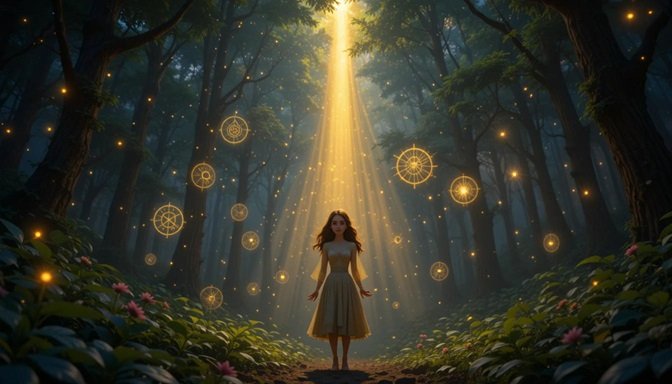
Just like any other type of growth, spiritual growth is not a linear process. You may find yourself moving back and forth between these stages throughout your life.
The 7 stages of spiritual development are:
- The Seeker
- The Awakening
- The Practice
- The Initiate
- The Disciple
- The Adept
- The Master
1. Stage One: The Seeker
The Seeker is someone who is just beginning their spiritual journey. They may have a lot of questions, but they’re not really sure what they’re looking for.
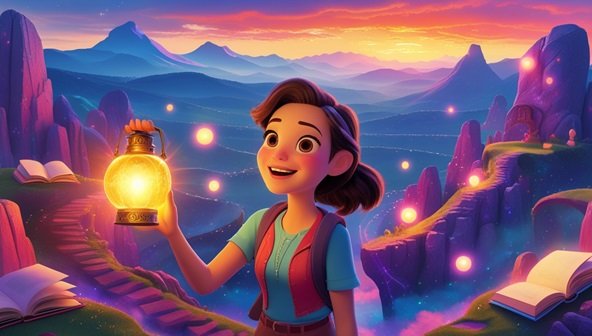
They may be drawn to spirituality because they’re feeling lost or disconnected, or because they’re looking for a sense of purpose and meaning in their lives.
The Seeker may be exploring different spiritual traditions, philosophies, or practices to find what resonates with them.
They may also be seeking guidance from spiritual teachers, mentors, or advisors.
If you’re in the Seeker stage, you may feel like you’re just starting to scratch the surface of something much deeper and more profound than you can imagine.
You may also feel like you’re not sure where to begin or what to focus on.
2. Stage Two: The Awakening
The second stage of spiritual development is the awakening.
In this stage, you begin to wake up to the idea that there is more to life than just the physical world.
You may start to question the meaning of life and what your purpose is.
You might also start to notice that there are synchronicities and signs all around you, guiding you on your path.
This is an exciting stage where you start to see the world in a new light.
3. Stage Three: The Practice
In the practice stage, you are learning how to apply the spiritual principles you’ve been learning about in your life.
You’re starting to see your life through a different lens and are making changes.
This is the stage where you start to see the fruits of your spiritual labor. You may start to feel more fulfilled and have more peace and joy in your life.
You may also start to see improvements in your relationships, career, and health.
You’re learning how to let go of the things that no longer serve you and are making room for new, positive experiences.
4. Stage Four: The Initiate
The Initiate is someone who has made a conscious decision to commit to a life of spiritual growth and self-discovery. This is a significant turning point in the spiritual journey.
In any other area of life, when we make a commitment, we are usually met with support and encouragement.
But when we make a commitment to our spiritual growth, we are often met with skepticism and doubt.
This is because the Initiate is standing at the threshold of the unknown. They are making a commitment to something that cannot be proven or quantified.
They are choosing to walk a path that is not always easy, and they are choosing to do so with faith and courage.
The Initiate is someone who has decided to embark on the spiritual path and is ready to take the necessary action to move forward.
5. Stage Five: The Disciple
The fifth stage of spiritual development is the disciple. In this stage, you become more fully committed to your spiritual path and begin to develop a deeper relationship with the divine.
You may also begin to take on a more active role in your spiritual community, and you may even start to teach others about your beliefs.
This stage is all about deepening your connection to the divine and finding ways to express that connection in the world.
6. Stage Six: The Adept
You are now a master of the spiritual arts, and you use your skills to help others. You have perfected your knowledge of the spiritual world and have the ability to connect with your higher self and the divine at will.
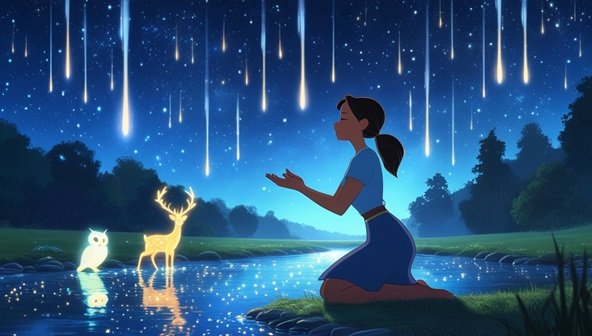
You have a strong sense of purpose and work to help others reach their potential. You are a healer, teacher, and spiritual leader.
You use your knowledge to help others find their way and to heal the world.
7. Stage Seven: The Master
The seventh stage of spiritual development is the stage of the master. The master is the person who has walked the path and achieved the goal.
They are the ones who have gone through the trials and tribulations of the previous stages and come out the other side.
They are the ones who have found peace, contentment, and joy in their lives. They are the ones who have found their purpose and are living it to the fullest.
They are the ones who are making a difference in the world.
The master is the person who has transcended the ego and is living from a place of love and compassion.
They are the ones who are leading by example and inspiring others to do the same.
The master is the person who has achieved enlightenment. They are the ones who have realized their true nature as divine beings.
They are the ones who are living in harmony with the universe and are one with all that is.
The Bottom Line
Understanding where you are in your spiritual development can help you identify where you need to focus your energy and what your next steps might be.
It can also help you understand what to expect as you continue to grow and change.
And, remember, you’re not alone. Spiritual development is a lifelong journey that we’re all on.
Levels of Spirituality
Just as there are stages of spiritual development, there are also levels of spirituality. These levels are determined by our understanding of the world and our place in it and how we choose to live our lives.
The levels of spirituality are as follows:
- Materialism: This is the lowest level of spirituality. People at this level are primarily focused on the material world and their own needs. They are often self-centered and may have a hard time connecting with others.
- Egocentric: People at this level are still primarily focused on their own needs, but they are beginning to develop a sense of self-awareness. They may start to see how their actions affect others and may be more willing to help.
- Pluralistic: People at this level are able to see the world from multiple perspectives. They may be more open-minded and tolerant of others. They are often able to form deeper connections with people from different backgrounds.
- Universal: This is the highest level of spirituality. People at this level are able to see the interconnectedness of all things. They are often very compassionate and may feel a sense of responsibility to help others.
Conclusion
The journey toward spiritual growth is a deeply personal experience, but you don’t have to go it alone. Surround yourself with people who share your values and beliefs, seek out literature that resonates with you, and find a spiritual guide, mentor, or coach to help you along the way.
As you navigate through the stages of spiritual development, it’s essential to recognize that each phase offers unique lessons and insights. Embrace the challenges of your current stage, understanding that they contribute to your overall growth. Engage in practices that resonate with you, be it meditation, journaling, or community involvement, to deepen your connection with yourself and others.
Remember, spiritual development is not a race, it’s about discovering your truth at your own pace. By remaining open to experiences and reflections, you cultivate resilience and wisdom that enrich not only your life but also those around you.
FAQ
How can I recognize my current stage of spiritual development?
You can identify your stage by reflecting on your experiences and mindset. For example, the awakening stage often begins with curiosity or a shift in perspective, while transcendence involves letting go of ego and embracing unconditional love.
Do the 7 stages follow a strict order?
Not necessarily. Spiritual growth is a personal journey, and you may revisit stages or experience them in a different order based on your unique path and life experiences.
How long does it take to go through all 7 stages?
There’s no set timeline. Each person progresses at their own pace, influenced by factors such as life challenges, commitment to spiritual practice, and openness to growth. It’s important to focus on the journey rather than the destination.
What practices can help me progress through the stages?
Meditation, mindfulness, journaling, yoga, and acts of compassion are effective practices. Reading spiritual texts, seeking guidance from mentors, and spending time in nature can also deepen your understanding and help you advance.

